It’s been over a decade since The Game Awards began highlighting the best developers, artists, narrative designers, and players in the industry. But with the 2024 edition just around the corner, there’s one category of workers in the gaming world that remains largely left out of that celebration: translators.
The work of a good translation and localization team can make or break a game’s worldwide success, whether that means bringing a Chinese hit to the massive English-speaking audience or adapting an American title to the passionate community in Brazil and Latin America. And developers seem to be aware of that—just perhaps not enough to credit all the people responsible for it, of course.
It’s not rare for translators to spend years working in the industry and feeling invisible. “I’ve worked in at least one of the steps of translation of more than 30 games,” Brazilian translator Lucas Rodrigues Oliveira told Dot Esports, “and none of them has included my name in the credits. To have that in my portfolio, I need to participate in unpaid contests like LocJAM where I submit my own translation.”
Though the issue is definitely not exclusive to the translation and localization team, and workers of all sorts still suffer from lack of credits, this is one of the areas where it’s most widespread and hurtful. And it goes beyond the invisibility in the game itself, which is starting to get noticed by the public. Most professionals in that area are freelancers, and the absence of their names in credits usually also means they can’t ever disclose having worked in certain projects—which makes a difference when we talk about portfolios and new client prospects.
Game translator Lucile Danilov, who has been working in the industry for almost two decades, is one of the most prominent voices of the localization community. She runs the blog Loc’d and Loaded, and if you’ve seen the hashtag #TranslatorsInTheCredits out there, chances are that she has something to do with it.
Each year since 2022, Danilov analyzes nominees for Game of the Year and Best Indie Game, checking how many languages they have been translated into and how many of those have credits for translators. The result is shared on X (formerly Twitter) and LinkedIn.
Back in 2022, though only one GotY or indie nominee (Horizon: Forbidden West) included no credits for translators at all, most of the others didn’t credit them in full. What this means, essentially, is that games that were localized into dozens of languages only named the people who worked in one or two of those. By 2023, the partial credits had all but disappeared in these two categories. Among the 11 nominees, four included full credits and seven included none at all. And in 2024, only two of the 10 nominees don’t credit any translators, according to Danilov.

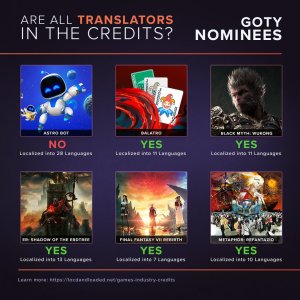
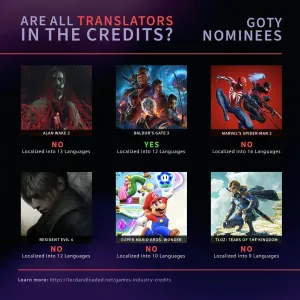
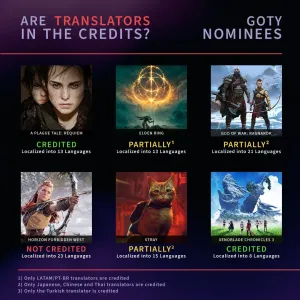

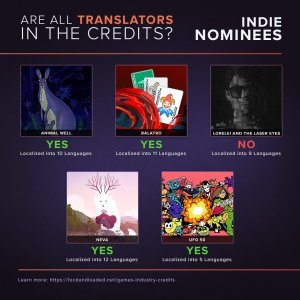
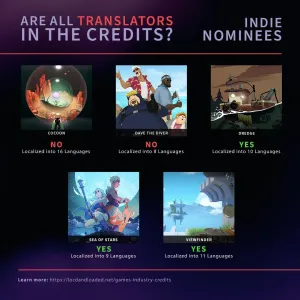
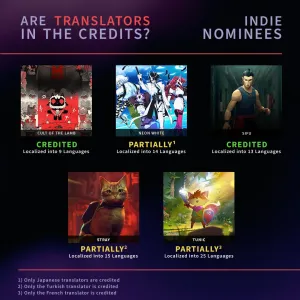
Putting the last three years side by side, we can see that the situation has somewhat improved in these main categories, except for some usual suspects.
Those include giants like Nintendo and Sony, as well as the beloved Annapurna Interactive. The latter usually credits localization agencies hired, such as EDS Wordland, which in turn do not credit the individual professionals they work with. This lack of credits from agencies is also part of the translators’ ongoing fight for rights in the industry.
If we only look at Danilov’s compilations, we might be optimistic. It makes sense. The situation in 2024, at least when it comes to Game of the Year and Best Indie Game nominees, is definitely better than it was in 2022, when she made the first posts in this specific series.
But in 2024, Oliveira began an even deeper study: He went as far as to check every single nominee in every category of TGA 2024—except the ones that are awarded to players and games that haven’t come out. And he has certainly found some interesting data.
According to Oliveira, though only two titles in the main categories fail to credit translators, less than 50 percent of the nominees credit their translators in full when we look at the full list. And yes, all the games were translated into at least one other language. In fact, the average translated languages per game was close to 13.
Here is a breakdown:

A very specific comparison he makes is between credits for translators and for pets and “production babies.” Among the 65 games analyzed, 21 included mentions to the babies born during production. One of them included a whooping list of 129 pets.
“My biggest credit-related frustration was a huge game I worked with through a respected translation agency. The agency even asked me how I’d like to be credited and had me sign an authorization. On release day, I spent hours watching gameplay videos until the credits rolled up, and when they did, none of the translators were there, only the agency. But there were a lot of babies,” Oliveira said of the case that inspired that addition. “And that was such a narrative-driven game, I’d say it’s unplayable if not translated. There must have been over 100 translators working to make it happen, but none of them were credited. The babies were.”
Why “watching gameplay videos,” you ask? Well, it’s highly unusual that translators are gifted a copy of the product of their work, for starters. AAA games in Brazil, where he lives, cost as much as R$300 or R$400—roughly 20 to 30 percent of a monthly minimum wage. For comparison, the $70 average price of AAA games in dollars equals roughly five percent of the average monthly minimum wage in the U.S. And that’s before you mention the time and skill that have to be invested—but that’s a whole different conversation.
After that specific incident, he started paying close attention to how developers credit their babies and pets, even when they don’t credit all the people who actually worked to bring the game to life.
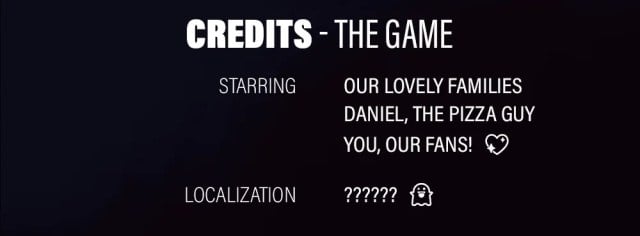
In addition to the lack of credits for translators, another aspect of Oliveira’s research is how hard it was to find the credits altogether for some games. He scoured the internet and his game library in search of the answers.
He lists Moby Games as a primary source of information, double-checked in the actual games whenever possible. The community-driven database already included full credits for a lot of the games on the list, like Marvel vs. Capcom Fighting Collection: Arcade Classics, which made the process relatively easy. Things become tricky when the information isn’t on Moby Games. To find the full credits for some of those, he did everything from watching YouTube gameplay videos to playing the games himself, or even enlisting the help of colleagues who had the most expensive titles.
The end result is a comprehensive study of all the games nominated, which you can check out in full on LinkedIn. Game titles have been omitted for reasons he did not explain, but we can imagine: Companies don’t really like being exposed, so it’s best to be safe.
Oliveira’s motivation comes from experience. Among the 34 games he has worked in since 2020—whether in translation, editing, or LQA— he said absolutely none included credits to his name.
“Because my personal experience is not necessarily representative of the whole, I think analyzing the nominees paints a better picture. Those are the biggest, most famous games we’re talking about,” he told Dot Esports. “But I think the real ‘trigger’ to begin the research was when I saw that more than one of the games I had worked on had been nominated. That was when I thought, ‘I have to do this.'”
If you’re a fan of any game that wasn’t originally made in your native language, localization is part of the reason why you get to enjoy a seamless experience. Gone are the days of “all your base are belong to us.” Translators working with game localization today are highly specialized language professionals with massive game knowledge, looking to provide international audiences an experience as close to the original as possible.
So take the time to see for yourself: Does your favorite game credit all the people who worked to make it happen?
It’s about time we make sure they all can celebrate the success of their hard work in public and get recognition for it. Or at least the same level of respect that the pets and babies get.
Oliveira’s contribution originally in Brazilian Portuguese, translated by Jéssica Gubert.


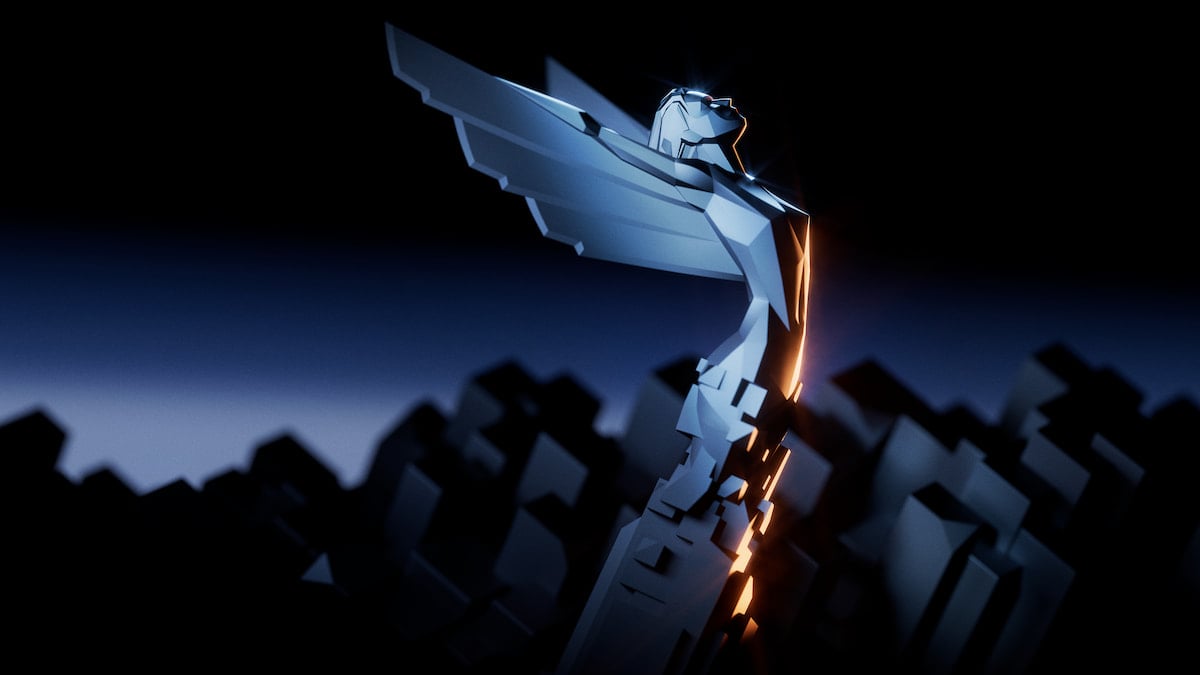
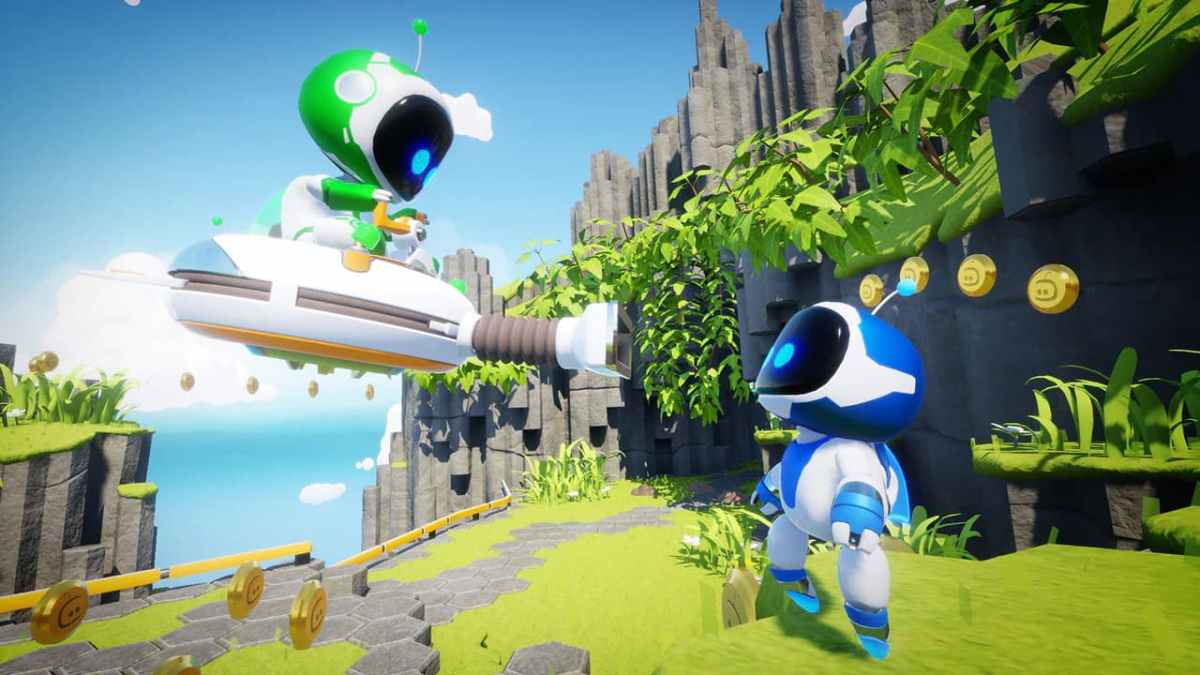
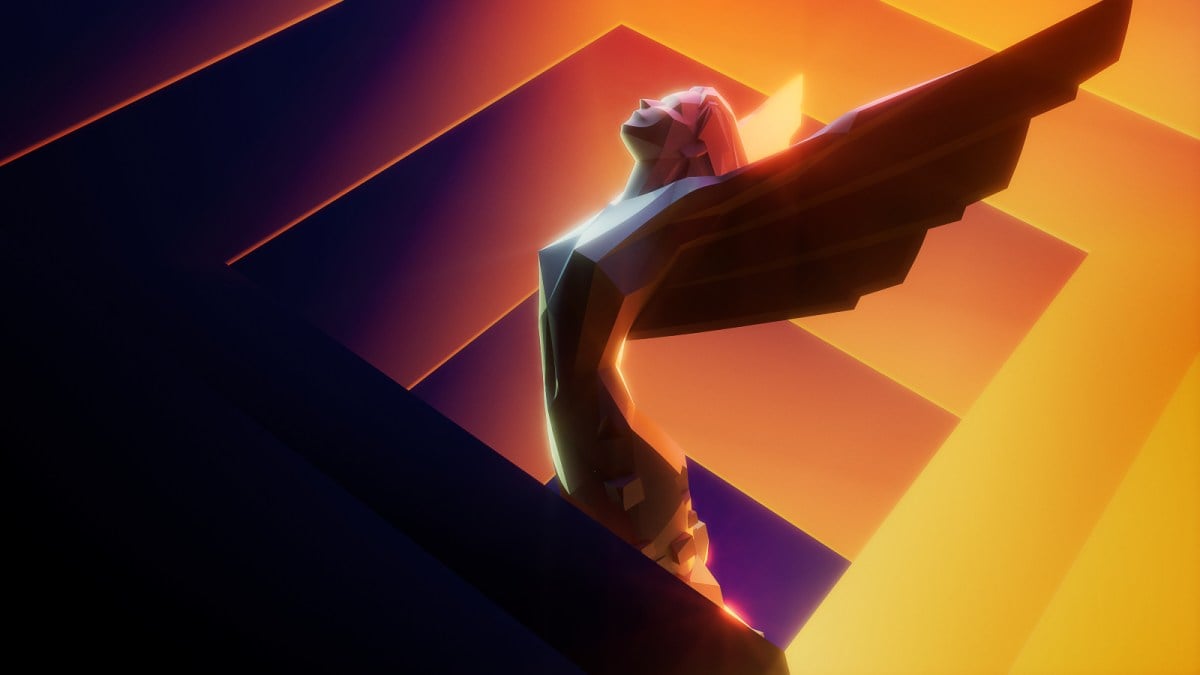
Published: Dec 12, 2024 05:16 pm